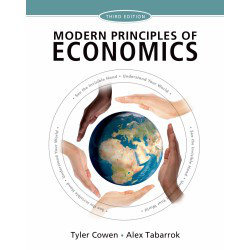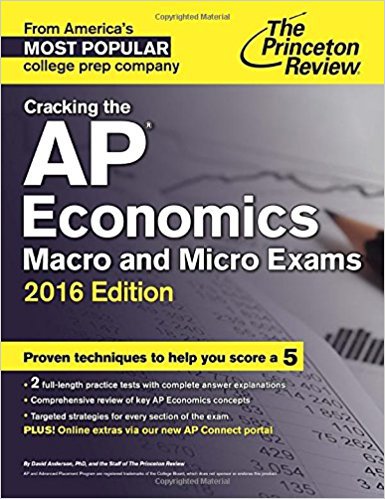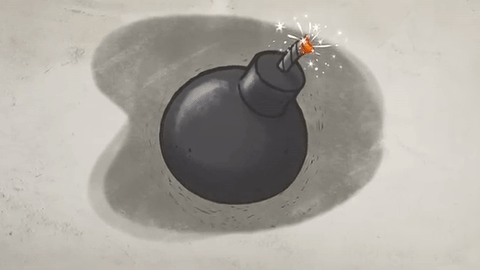 Bryan Caplan
Bryan Caplan
A professor at George Mason University, research fellow at the Mercatus Center, adjunct scholar at the Cato Institute, and blogger for EconLog, Bryan Caplan knows his stuff – his stuff being economics. And so last February, when we ran across a statement by him that his first encounter with eco textbooks proved many of them to be alarmingly “pro-communist,” we kept reading. Those books, he maintained, were “very positive relative to communism’s historical record” and their authors “seemed deeply ignorant of actual communism.” They were, in fact, “communist dupes,” spreading “a radically overoptimistic image of communism.”
 Tyler Cowen and Alex Tabarrok
Tyler Cowen and Alex Tabarrok
Is this still the case? Now, a generation later, Caplan is helping his son, a high-school student, prep for an advanced-placement eco exam. The main text in the subject, Modern Principles of Economics by Tyler Cowen and Alex Tabarrok, gets good grades from Caplan: it “includes accurately horrifying details about life under communism.” But the test prep books are something else again. The Princeton Review’s Cracking the AP Economics is “mostly a normal econ text,” but its account of Communism, Caplan says, is nothing less than “awful.” He takes it apart sentence by sentence: “Communism,” it states, “is a system designed to minimize imbalance in wealth via the collective ownership of property.” In fact, Caplan points out, collective ownership “was never primarily a means of ‘minimizing wealth imbalance’”; for Communist leaders, it was “an end in itself,” kept in place despite the fact that it “caused horrifying famines in the short-run, and low agricultural productivity in the long-run.”
 Cowen and Tabarrok’s textbook: good on Communism
Cowen and Tabarrok’s textbook: good on Communism
The Princeton Review prep book goes on: “Legislators from a single political party – the communist party – divide the available wealth for equal advantage among citizens.” Caplan’s comeback is blunt:
What actually happened under communism was rather different. Communist regimes began with the mass murder of their political enemies, businessmen, and their families. Next, they seized the peasants’ land, leading to hellish famines. In time, they launched major “industrialization” campaigns but obsessively focused on building up their militaries, not mass consumption. And no communist regime has ever tried to “divide wealth for equal advantage.” Bloodbaths aside, communist regimes always put Party members’ comfort above the very lives of ordinary citizens.
 The Princeton Review’s book: not so good on Communism
The Princeton Review’s book: not so good on Communism
The prep book goes on: “The problems with communism include a lack of incentives for extra effort, risk taking, and innovation.” Caplan’s reply: “Communist regimes did provide poor incentives to produce consumer goods for ordinary citizens. But they provided solid to excellent incentives in the sectors they really cared about: the military, secret police, border guarding, athletics, space programs, and so on.” Finally, Princeton had this to say: “The critical role of the central government in allocating resources and setting production levels makes this system particularly vulnerable to corruption.” Caplan: “Talk about praising with faint damnation. Never mind mass murder, famine, pathological militarism, and state-mandated favoritism for Party members. What’s really telling is that communism was ‘particularly vulnerable to corruption.’” What kind of a book “leaves students with the impression that corruption was communism’s chief defect”?
Share this:

![Her Dark Half (X-Ops Book 7) by [Tyler, Paige]](/ai/054/677/54677.jpg)


